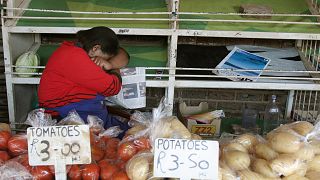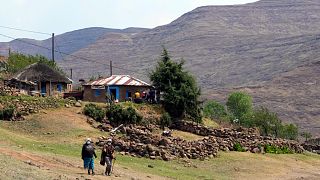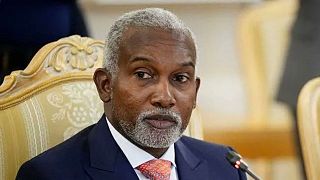Nigeria
Nigeria’s stock exchange is looking to attract investors spooked by a weak currency and oil price by offering more products ahead of a possible listing.
The exchange, saw the total market capitalisation of companies listed there halve to around 42 billion U.S dollars from 86.3 billion U.S. dollars in 2007 when the market was booming.
Daily trading has dropped on average to less than 10 million U.S. dollars, down from 100 million U.S. dollars in 2007, brokers say.
It now plans to add options to its portfolio of products to boost this flagging liquidity and help investors manage risk.
“We would like to give exposure to participants in the capital market, in asset classes that we are not necessarily trading and that is where the synthetics come in but that will not happen on day one so there will be a product roll-out schedule as we get closer and so these products eventually day two, day three will come on board but the critical thing is to start with real products that are existing today that you need to manage your risks with,” said the CEO of Nigeria’s stock exchange, Oscar Onyema.
Plans are also underway for the Stock Exchange to launch a clearing house to allow futures and options trading this year.
It will also change its ownership structure from a mutual firm of 500 broker members, a move that might bring in investors from abroad or lead to a share offer at some stage later.
In October, the bourse said it had appointed South African bank FirstRand and local investment firm Chapel Hill Denham to advise it on the transformation.
Nigeria is suffering its worst economic crisis in decades.













Go to video
U.S. slashes visa duration for some African nationals amid policy shift
02:05
WAFCON: Super Falcons fans optimistic about the team's performance
01:06
Brazil launches major security operation ahead of BRICS Summit
01:30
Nigerian singer Tems launches Leading Vibe Initiative to support women in music
00:52
Nigeria’s Peter Obi to contest 2027 election, opposition coalition in jeopardy
11:15
AI drones lead breakthrough against malaria in Africa [Business Africa]